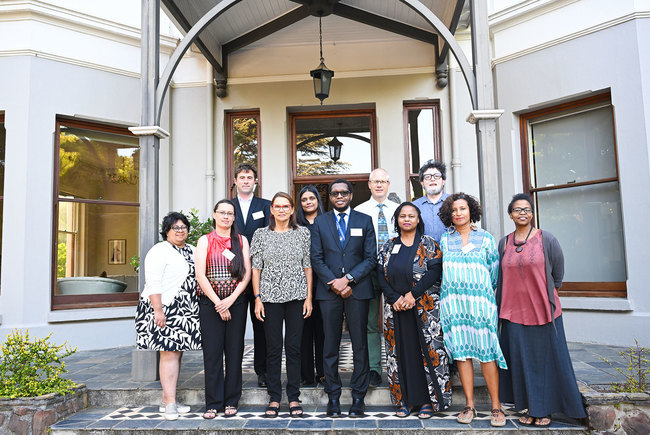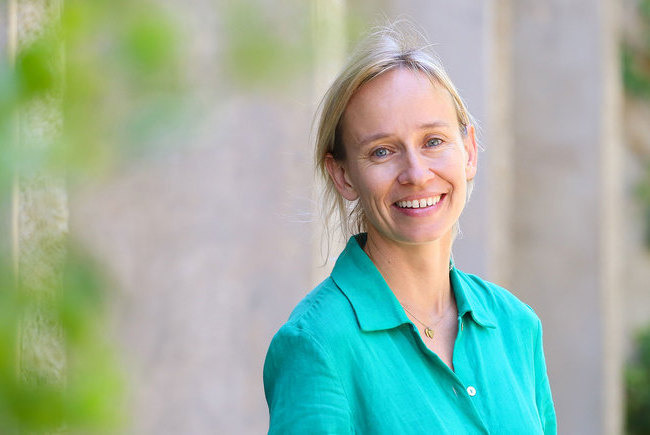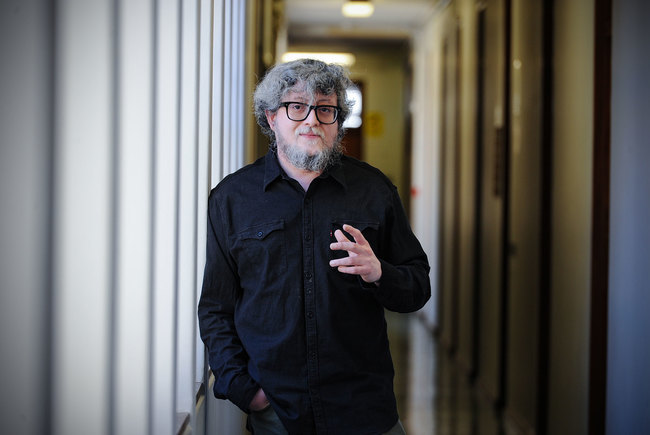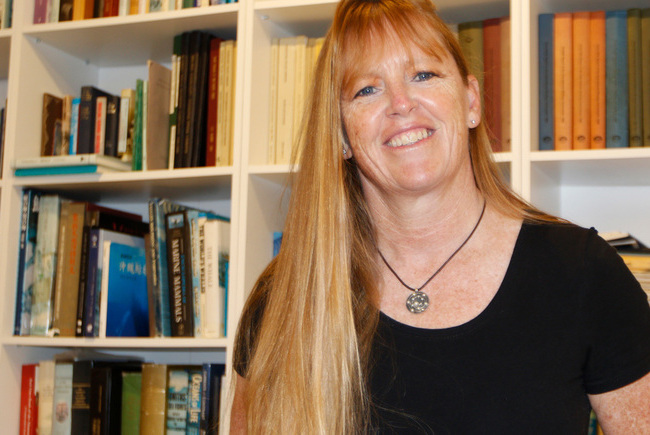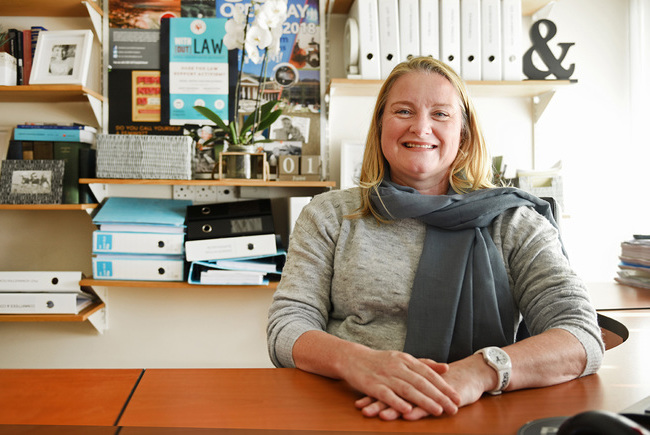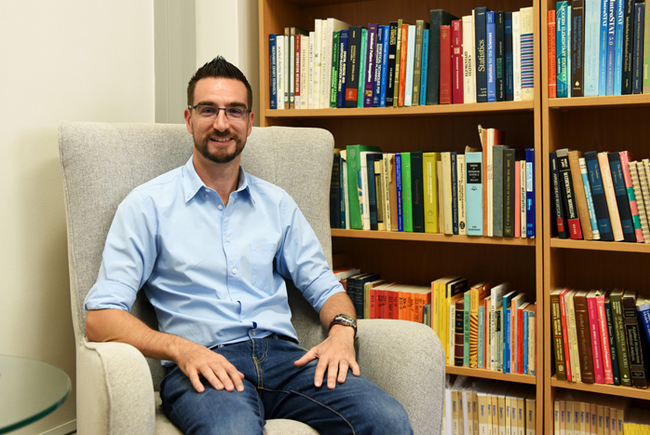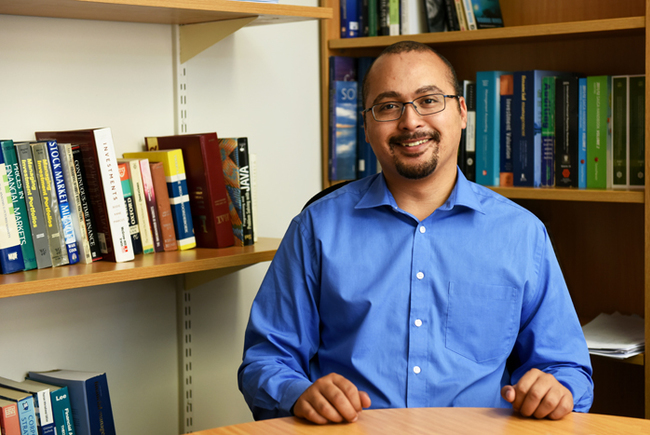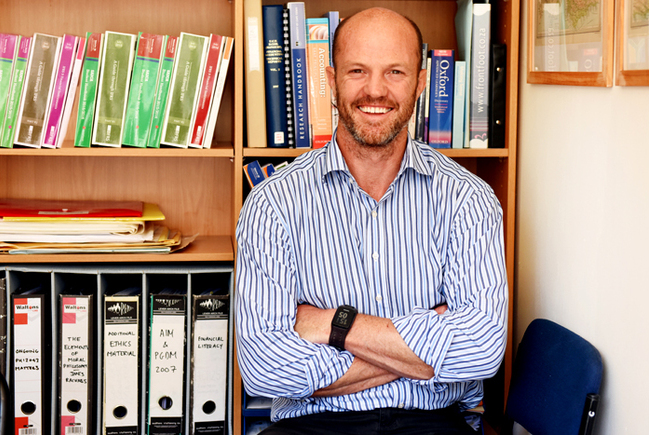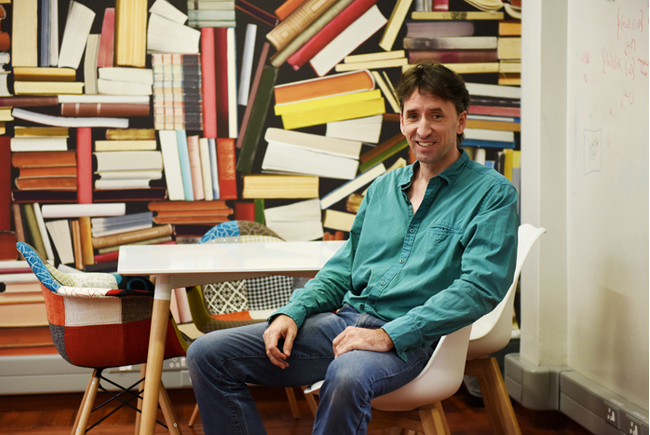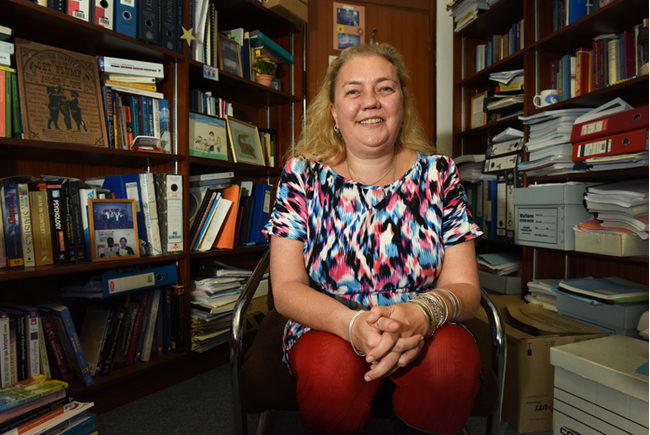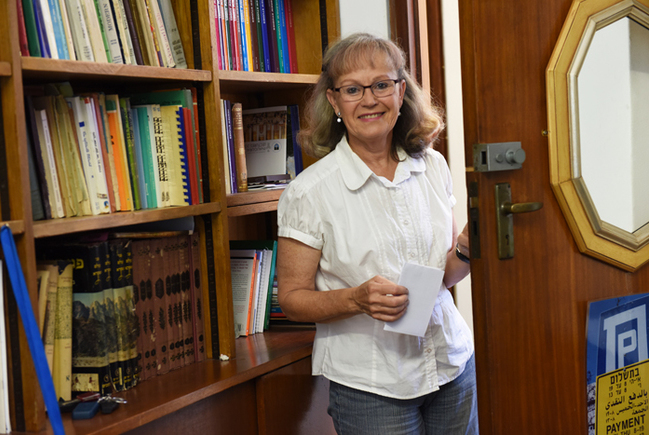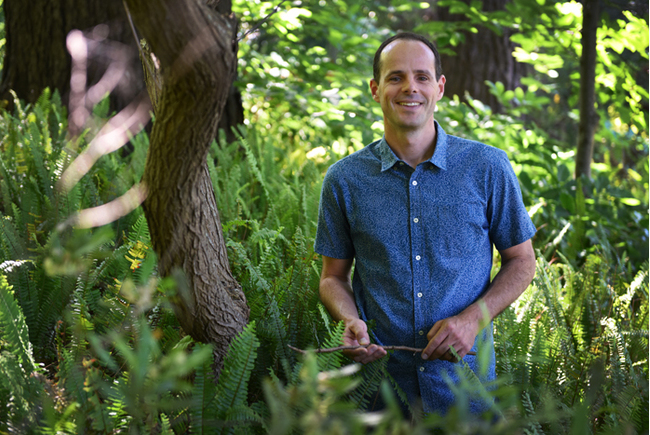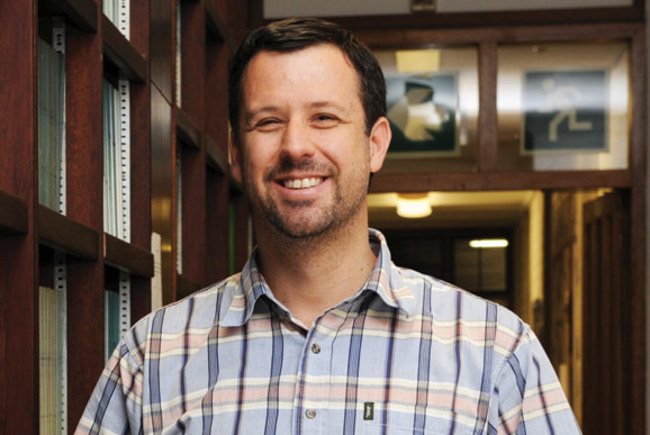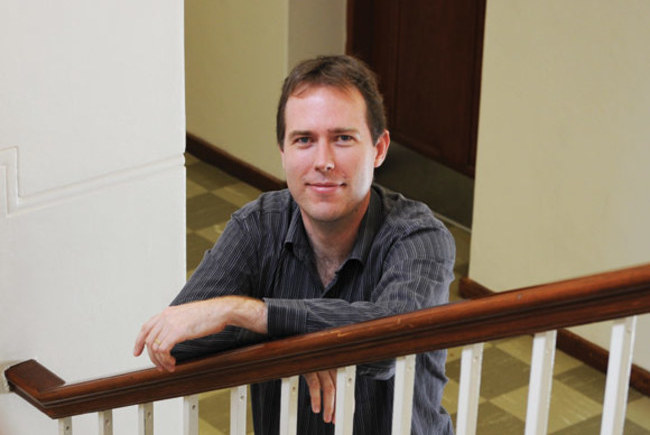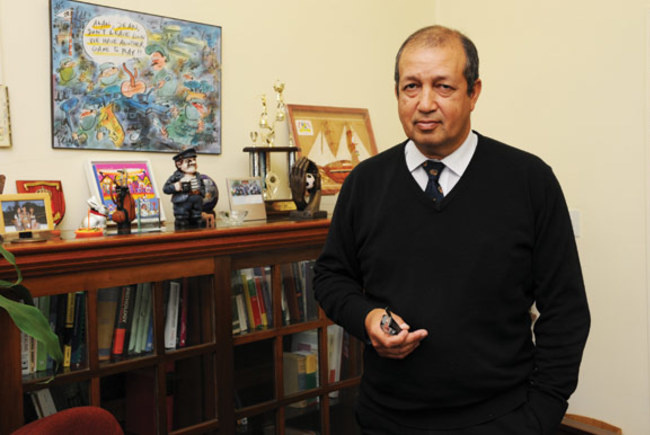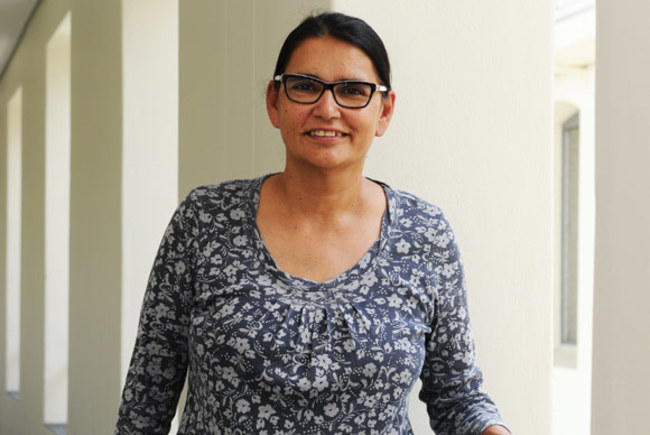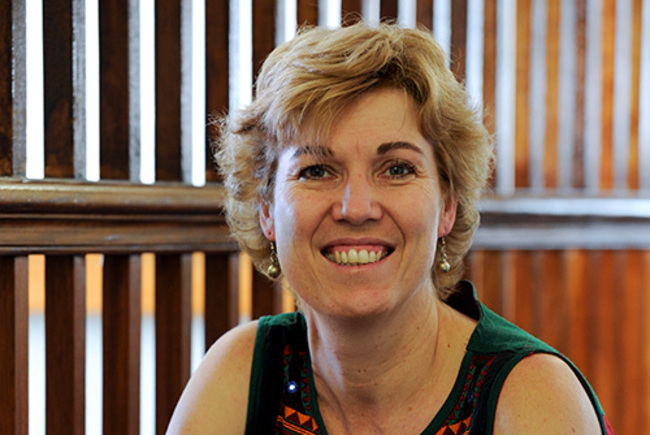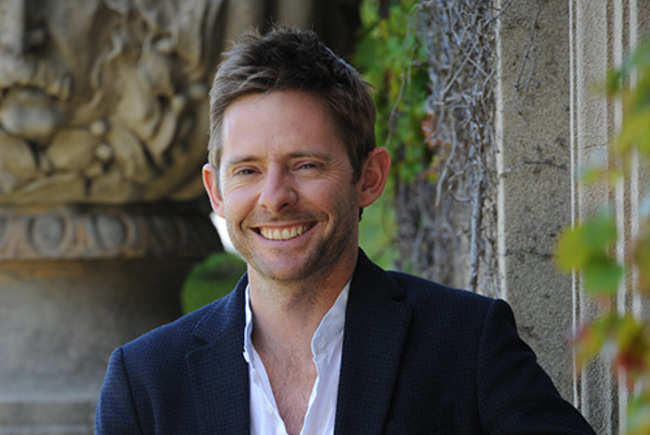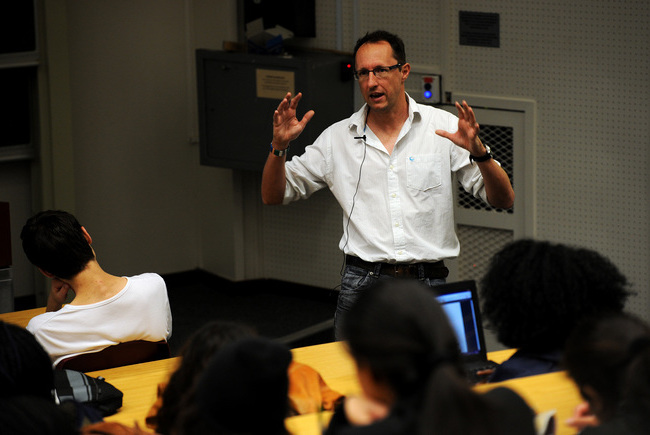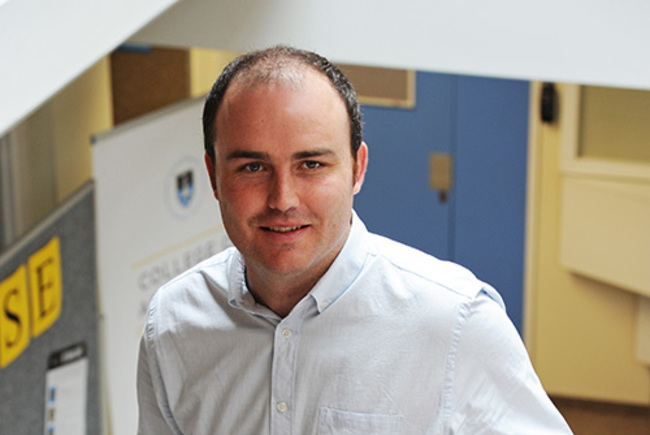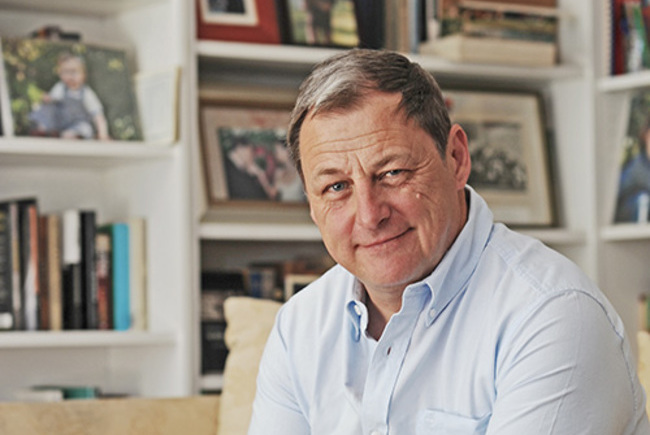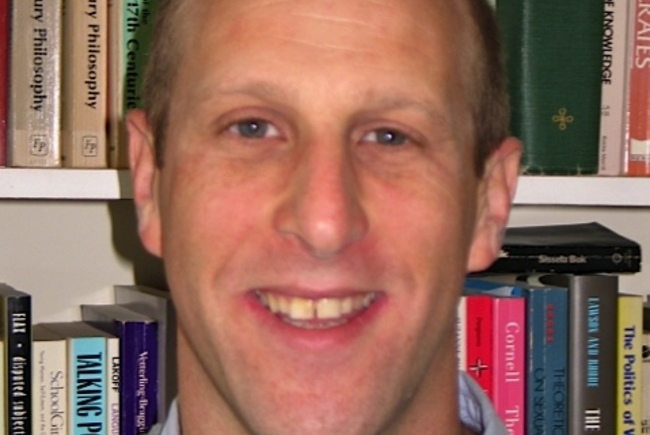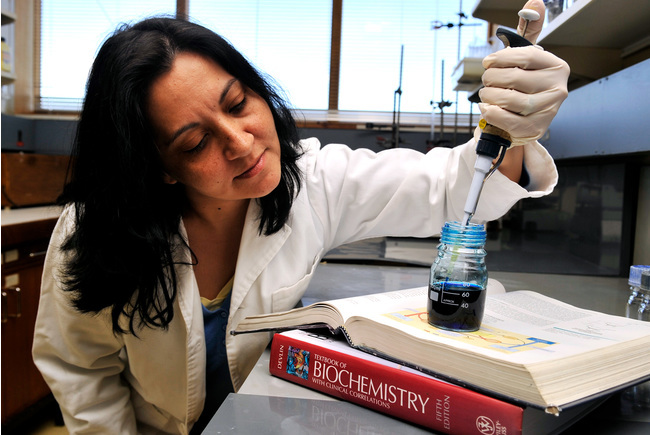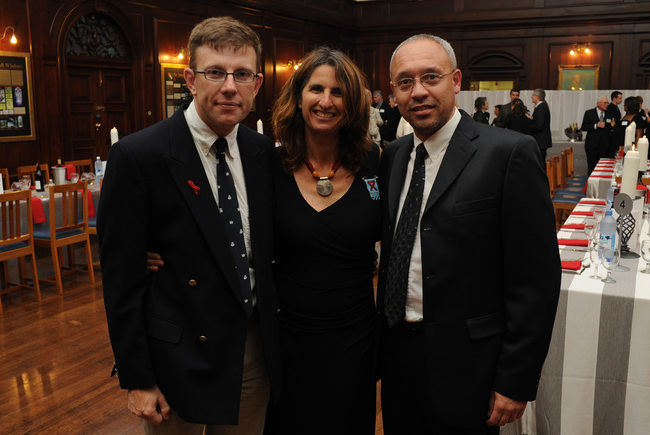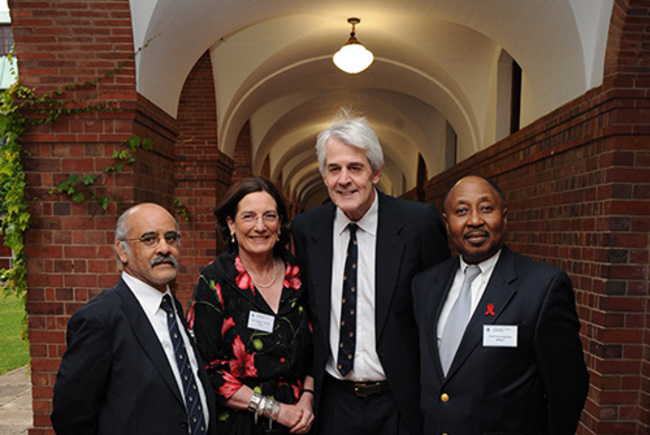'If learning is not engaging it is not happening'
30 November 2015 | Curated Abigail Calata. Photo Supplied.
Associate Professor Jacqui Kew, a 2015 Distinguished Teacher awardee from the College of Accounting, engages her students by asking questions in the classroom. She believes that students are responsible for their own learning journeys and that a good teacher's job is to ensure these journeys are well sign-posted.
Q: What do you teach and how did you become a teacher?
A: I teach first year financial accounting as well as executive education courses at the Graduate School of Business – teaching finance to non-financial managers. I'm also involved with courses aimed at small business owners.
I matriculated during a turbulent time in South Africa's history; however, as I had been able to access a good education, I had the freedom to choose how and what I wanted to do with regards to my future livelihood. I was acutely aware that many people in South Africa had been denied access to a good education and therefore had more limited choices with respect to their future. I recognised the importance of education and felt drawn to it as a profession.
Q: What enthuses you about getting in front of a class or with a group or individual?
A: I love seeing students become passionate about the concept of financial literacy. Through a basic understanding of financial terminology, students are better equipped to take control of their financial future. A driving passion in my approach to education is the belief that financial literacy is as important a life skill as literacy and numeracy.
Q: How would you describe your style?
A: I have a fairly relaxed teaching style in that I enjoy having a conversation with my students. I find that the easiest way to recognise whether my students understand the work is to ask questions. I think most, if not all, of my first year students would understand what it meant if I mentioned in lectures that today was a red or a green day – in other words anyone dressed in the specified colour would know that they may be asked a question – which allows them to be prepared as well as lightens the mood in the lecture venue.
Q: What do you think makes a good teacher?
A: Good teachers care about the students, are passionate about their subject area and really want their students to access their subject. A good teacher also constantly asks the 'why' questions and allows students to find their way to the answers. Good teachers simplify complex concepts and do not make simple concepts seem complex. Good teaching recognises that while learning is not necessarily easy, if it is not engaging, it is unlikely to happen at all.
Q: How do you adapt to diverse classes in terms of language, culture, nationality, and so on?
A: By recognising that students have different starting points, for example, some may come from a family that has little or no financial expertise, whereas other students may have been brought up actively participating in a family business. To accommodate this, the first year accounting class is split into separate classes – students with prior accounting knowledge and students without prior knowledge. Recognising where students are starting from, makes it easier to determine the pace, language and initial level of engagement within the teaching context.
In teaching we must recognise the importance of language and how nuances in English could impact on students' ability to understand key concepts. This could result in students learning explanations rather than being able to fully engage with the material. Targeted teaching recognises this and provides sufficient support to enable all students to improve their academic English and simultaneously develop a deep understanding of the material.
Q: Does technology play a big role for you?
A: Technology is playing an increasingly important role in my ability to convey concepts and ideas to an increasingly larger audience. The web-based Learn Accounting project, which offers short concept videos in five languages, namely English, isiXhosa, isiZulu, Xitsonga and seSotho, has a greater reach and allows students to re-watch videos as often as needed. However, I still find I enjoy using pen and paper when I explain concepts and ideas to students. While technology is extremely useful, I enjoy the face-to-face contact with students.
Q: And how does your research shape your teaching?
A: It is possible to teach for 20 years or to teach one year 20 times. It is only through reflecting on teaching, experimentation and discussion; as well as reading widely in the area of educational practice that I can ensure that I will not be teaching the same year 20 times. My research interests have allowed me to experiment, make mistakes, learn from them and develop as an educationalist.
Q: What are your five top tips for teachers?
A:
- Show that you care.
- Don't take yourself or your subject area too seriously.
- Stop talking, often.
- Recognise that students are responsible for their own learning; you are responsible for ensuring that their journey is well signposted.
- Have fun, laugh often, if you don't enjoy what you are doing, neither will your students
Q: Any other comments or anecdotes you'd like to add?
A: I feel privileged to have had the opportunity to teach many future academics, successful business people, entrepreneurs, lawyers, doctors and engineers – to mention but a few. When I think of the myriad of fabulous futures my students will have, I am reminded that the primary difference between myself and my current students is time and experience. While I am able to share the knowledge and experience that time has granted me – it is important to recognise that in time, all my students will equal, if not exceed my knowledge and experience. As teachers we must continue to be learners.
 This work is licensed under a Creative Commons Attribution-NoDerivatives 4.0 International License.
This work is licensed under a Creative Commons Attribution-NoDerivatives 4.0 International License.
Please view the republishing articles page for more information.
Distinguished Teacher Award
The Distinguished Teacher Award is the highest accolade awarded to teaching staff at all levels within the university. Through the award, the University of Cape Town acknowledges the primary place of teaching and learning in the university’s work.
2023
2022
2021
2020
2019
2018
2017
2016
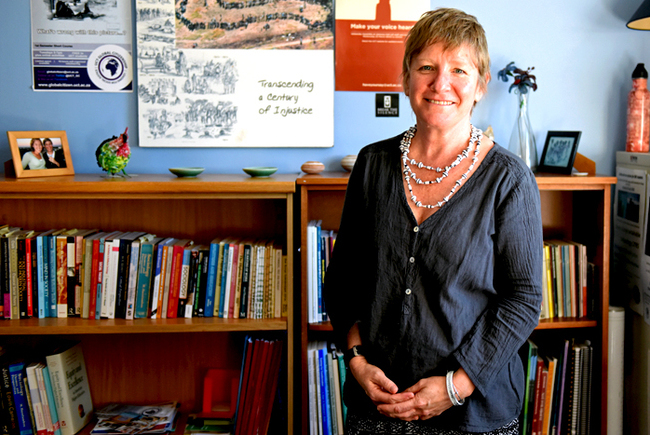
Distinguished Teacher Awardee Dr Janice McMillan's work is not discipline-specific; rather it's about transformative teaching and how we engage the wider world beyond the university. This community-based learning encourages students to think about themselves simultaneously as students, emerging professionals and active citizens.
30 Mar 2017






